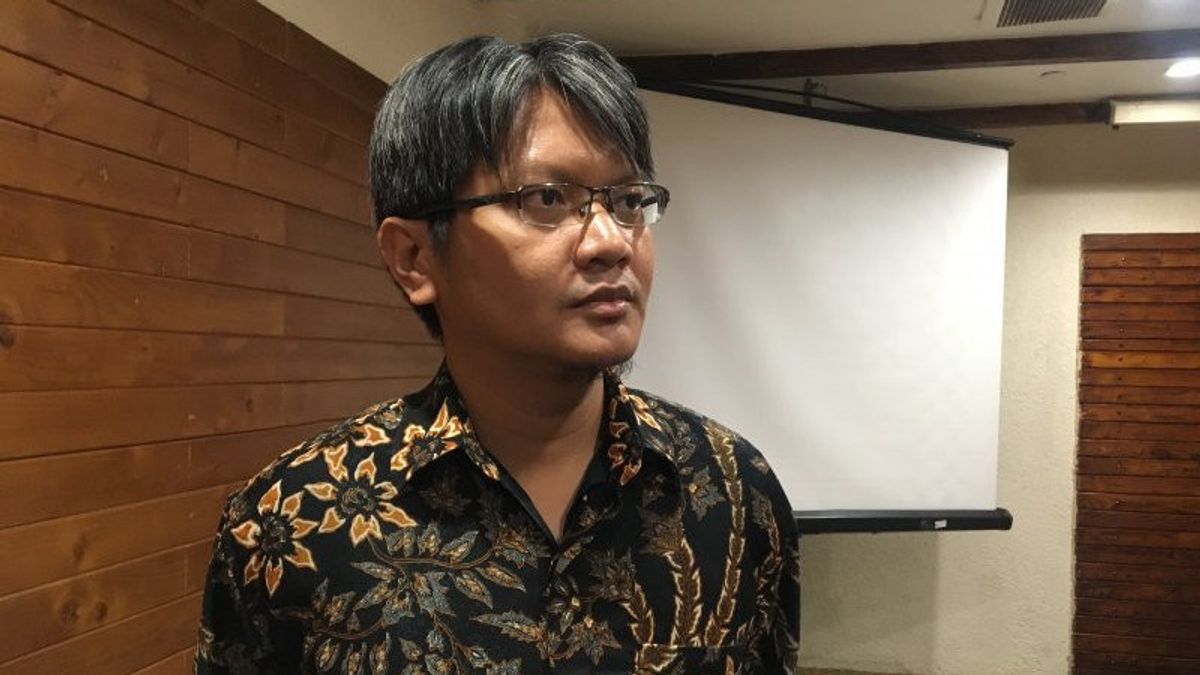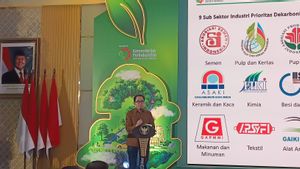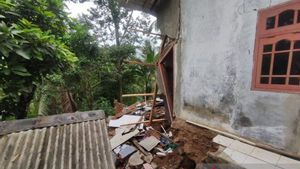JAKARTA - The Indonesian government has succeeded in navigating the conditions of the COVID-19 pandemic with a number of programs that are praised by the world.
Indonesia also recovered faster and recorded an improvement in economic growth in the second year of the pandemic.
However, post-pandemic economic recovery is determined by people's behavior.
Institute for Development of Economics and Finance (Indef) researcher Ahmad Heri Firdaus explained that the gas and brake policies taken by the government are a must when the COVID-19 pandemic hits.
Therefore, it has become a lesson for the government to balance the handling of the pandemic and maintain the economy.
"Indeed, when COVID-19 was still the beginning, the first year, it was only natural that we carried out policies that put the brakes on or gas. It was natural to mitigate, and minimize the impact, how to avoid something worse from the economy," he said in Jakarta, Tuesday, August 30.
According to Heri, the success of handling the pandemic and economic recovery is also highly determined by people's behavior.
He saw the participation of the community in it, namely awareness to face and respond to the pandemic as part of everyday life.
"So, if you claim it like it is now, indeed from the programs that are run, then also don't forget that this is also influenced by the level of public concern, which is getting more aware (aware), and can overcome how it can respond," he explained.
"In the past, I was still afraid, now I care more about cleanliness, health, then how to react if someone gets positive. So the role of this community is also very decisive," he continued.
Furthermore, Heri emphasized that Indonesia's success in dealing with the pandemic and keeping the economy from collapsing was the result of the cooperation of all parties.
"The point is that this is claimed by one party. I think this is more fair by all parties, the community, the government, and all," he said.
Budget Allocation 2023 Must Stay Target
Public Policy Observer Trubus Rahadiansyah said, so far KPCPEN during the pandemic has helped the economic recovery, the funds disbursed can withstand the pace of the pandemic which has caused so many victims. Now, economic growth has begun.
The COVID-19 pandemic is starting to slow down in Indonesia. KPCPEN will also stop operating in 2023.
The budget for handling COVID-19 in 2023 in the State Revenue and Expenditure Budget (APBN) will be focused on facing the challenges of inflation turmoil, food crises, energy, debt, and climate change.
Therefore, Trubus reminded that the budget allocation in 2023 will be more targeted and transparent.
"Because the aspect that the public hopes is sustainability, especially in 2024 there will be a political shift, this will definitely have an effect," Trubus explained.
In addition, Trubus said, the government also needs to be prepared and alert for the possibility of another pandemic.
Seperti yang dilakukan KPCPEN, contoh sukses bagaimana pemerintah mengelola kesehatan dan perekonomian.
"In this case, the policies set by the government must be more at the level of how the public has sustainable health resilience. If it is healthy, the economy is running," explained Trubus.
The English, Chinese, Japanese, Arabic, and French versions are automatically generated by the AI. So there may still be inaccuracies in translating, please always see Indonesian as our main language. (system supported by DigitalSiber.id)













